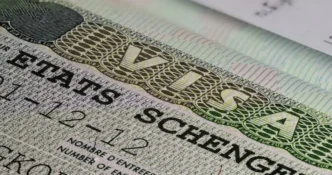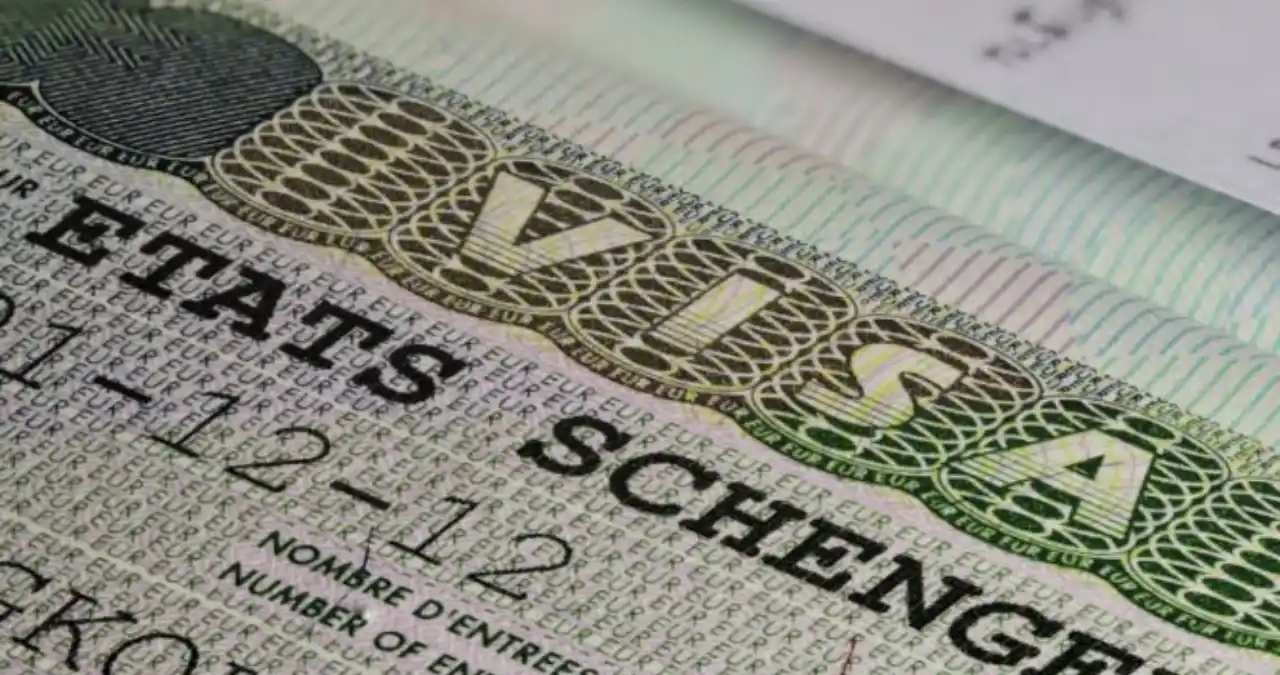Bangkok remains outside the European Union’s evolving travel authorization framework, with Thai nationals still required to obtain a Schengen visa for entry into most European countries, the Thai Ministry of Foreign Affairs confirmed recently. The statement comes in response to widespread online rumors suggesting that visa requirements for Thai travelers would be lifted by 2026, replaced by a simpler online application under the European Travel Information and Authorisation System (ETIAS).
These claims, circulating on various travel pages and social media platforms, have caused confusion among Thai citizens planning trips to Europe. The ministry, citing information from the Thai Embassy in Brussels, emphasized that Thailand is not currently part of the ETIAS framework, which is set to streamline entry for nationals of visa-exempt countries starting in 2025. For now, the traditional Schengen visa application process remains mandatory for Thai travelers.
Understanding the Schengen Visa and ETIAS
The Schengen Area comprises 27 European countries that have abolished internal border controls, allowing for seamless travel among member states with a single visa. For Thai nationals, obtaining a Schengen visa involves submitting applications through embassies or consulates, often requiring detailed documentation such as proof of financial means, travel itineraries, and accommodation bookings. The process can be time-consuming and costly, with fees varying by country but typically around 3,200 Thai Baht (US$90) for a short-stay visa.
In contrast, ETIAS, expected to roll out in 2025, is designed as a lighter, online pre-authorization system for citizens of over 60 countries that currently enjoy visa-free access to the Schengen Area. Similar to the U.S. Electronic System for Travel Authorization (ESTA), ETIAS will require travelers to apply online, pay a small fee—projected at around 7 euros (US$8)—and receive approval before departure. The system aims to enhance security by screening travelers against EU databases for potential risks while simplifying entry procedures.
However, Thailand is not among the countries eligible for ETIAS, as it does not have a visa waiver agreement with the EU. This distinction has been lost in the wave of misinformation suggesting an imminent policy shift. A spokesperson from the Thai Ministry of Foreign Affairs reiterated that “no changes to the Schengen visa requirements for Thai nationals have been announced by the European Union” and urged citizens to rely on official sources for travel updates.
Misinformation and Its Impact on Travelers
The spread of false claims about visa-free travel to Europe highlights the broader challenge of misinformation in the digital age, particularly within the travel sector. Social media platforms and travel blogs, while useful for sharing tips, often become conduits for unverified information. In this case, posts claiming that Thai nationals would soon bypass the Schengen visa process gained traction, raising false hopes among prospective travelers.
Such misinformation can have tangible consequences. Travel agents in Bangkok reported a surge in inquiries from clients asking about the rumored policy change. “Many people were excited, thinking they could plan European holidays without the hassle of a visa” said a Bangkok-based travel consultant. “Now they’re disappointed to learn it’s not true.”
Beyond disappointment, there’s a risk of financial loss if travelers make non-refundable bookings under the mistaken belief that visa requirements have been lifted. The Thai Ministry of Foreign Affairs has advised citizens to verify information through official channels, such as embassy websites or the ministry’s own announcements, before making travel arrangements.
Thailand’s Position in Global Travel Frameworks
The exclusion of Thailand from ETIAS reflects broader dynamics in international travel agreements, often shaped by diplomatic relations, security considerations, and migration policies. While countries like South Korea, Japan, and Singapore benefit from visa waiver programs with the EU, Thailand has yet to secure similar arrangements. This discrepancy stems from a range of factors, including differences in passport strength—Thailand’s passport ranks 66th globally in terms of visa-free access, according to the Henley Passport Index, compared to Singapore’s top ranking—and ongoing EU concerns about irregular migration.
Thai officials have long sought to negotiate visa exemptions with key global partners, including the EU, as part of efforts to boost tourism and business ties. In recent years, Thailand has secured visa-free or visa-on-arrival access to over 70 countries, but Europe remains a notable gap. Discussions between Bangkok and Brussels have occurred periodically, though no breakthroughs have been reported. “We continue to engage with the EU on facilitating travel for Thai nationals” said a ministry official, though they declined to speculate on timelines for potential agreements.
For now, Thai travelers face a more cumbersome process compared to their regional peers. A Thai businesswoman planning a trade conference in Germany described the Schengen visa process as “a significant barrier.” “It’s not just the paperwork; it’s the uncertainty of approval” she said. “Colleagues from Singapore or Malaysia can book a flight and go, while I have to plan months ahead.”
EU’s ETIAS Rollout and Global Implications
The introduction of ETIAS in 2025 marks a significant shift in how the EU manages border security and tourism. While primarily targeting visa-exempt countries, the system’s rollout has sparked global interest—and confusion—about who qualifies. The EU has clarified that ETIAS applies only to nationals of countries with existing visa waiver agreements, a category that excludes Thailand, India, and much of Southeast Asia.
For the EU, ETIAS is part of a broader strategy to balance openness with security. The system will link to databases like the Schengen Information System (SIS) and Interpol records to flag potential threats before travelers arrive. While the process is expected to be quick—most applications will reportedly be processed within minutes—denials could occur based on security or criminal history concerns.
Analysts suggest that the launch of ETIAS might prompt countries like Thailand to accelerate diplomatic efforts for visa waivers, as exclusion from such systems could be perceived as a competitive disadvantage in attracting European tourists or business. Conversely, the EU may use ETIAS as leverage in negotiations, encouraging stricter migration controls or enhanced data-sharing agreements as preconditions for visa liberalization.
Looking Ahead for Thai Travelers
As the EU prepares to implement ETIAS, Thai nationals must navigate the existing Schengen visa regime for the foreseeable future. The Thai Ministry of Foreign Affairs has pledged to keep the public informed of any developments in travel policies, urging patience and caution against unverified online claims. Meanwhile, travel industry stakeholders in Thailand are calling for greater public education on visa processes to prevent future misunderstandings.
The incident also underscores the importance of digital literacy in an era where misinformation can spread faster than official clarifications. For Thai citizens dreaming of exploring Europe’s cultural capitals, the path remains unchanged—through embassy doors and visa applications. Whether diplomatic efforts will eventually ease these barriers remains an open question, one that both travelers and policymakers will watch closely in the years ahead.















